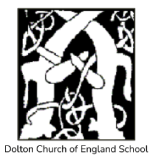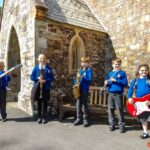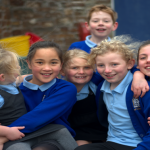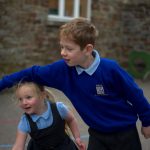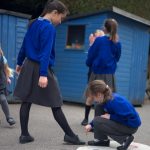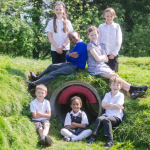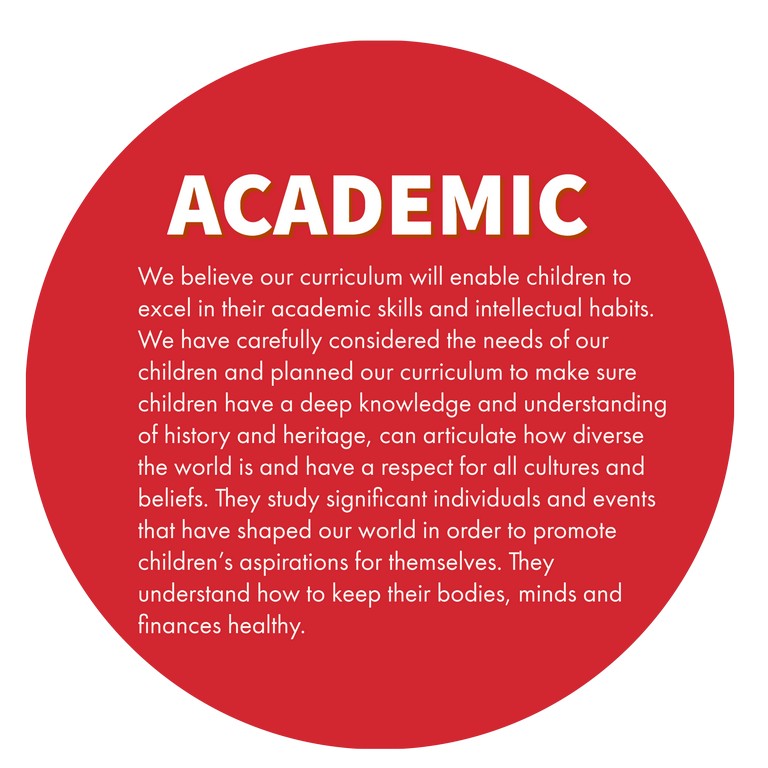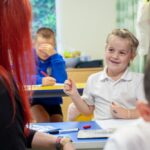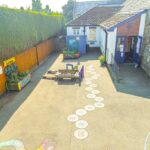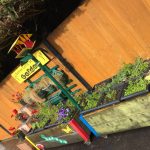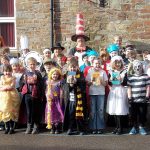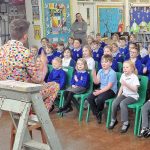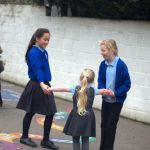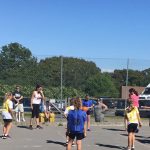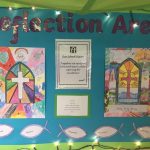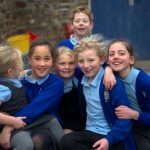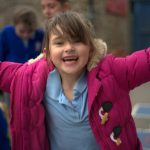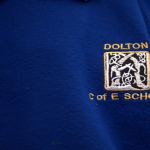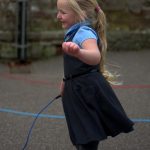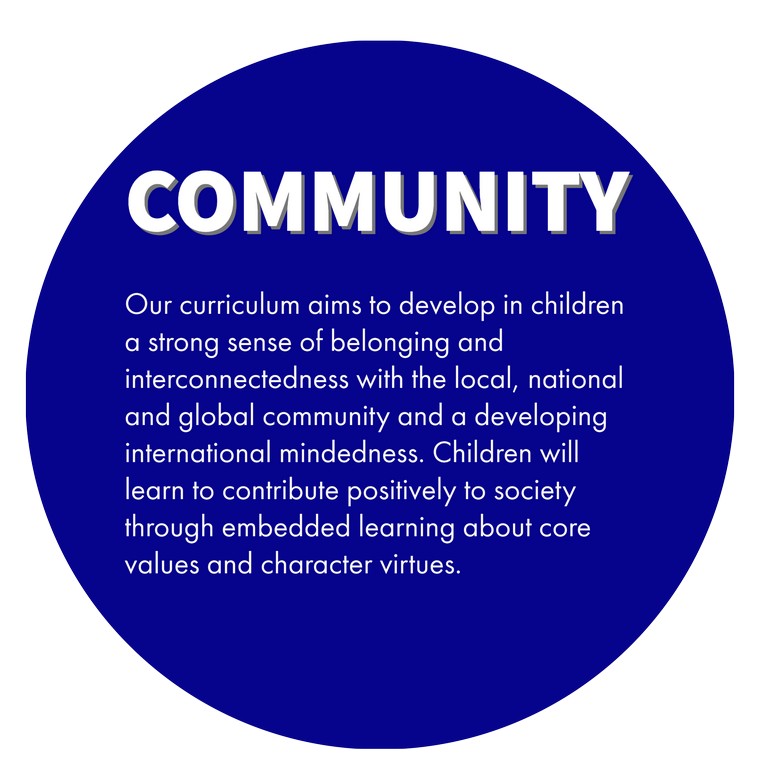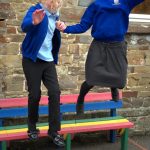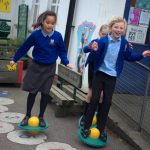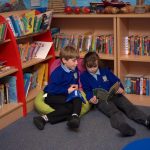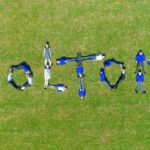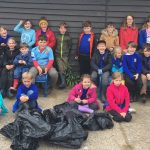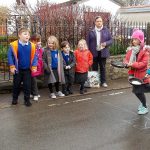Intent
We believe our curriculum will enable children to become inspiring change makers and global citizens of the future. We aim to inspire a quest for learning throughout life that is marked by enthusiasm and empathy, ensuring flourishing for all. As a Church of England School, our curriculum is aligned with and underpinned by the theology within the Church of England Vision for Education ensuring that children are able to live ‘life in all its fullness’ John 10:10
The four cornerstones of our curriculum are:
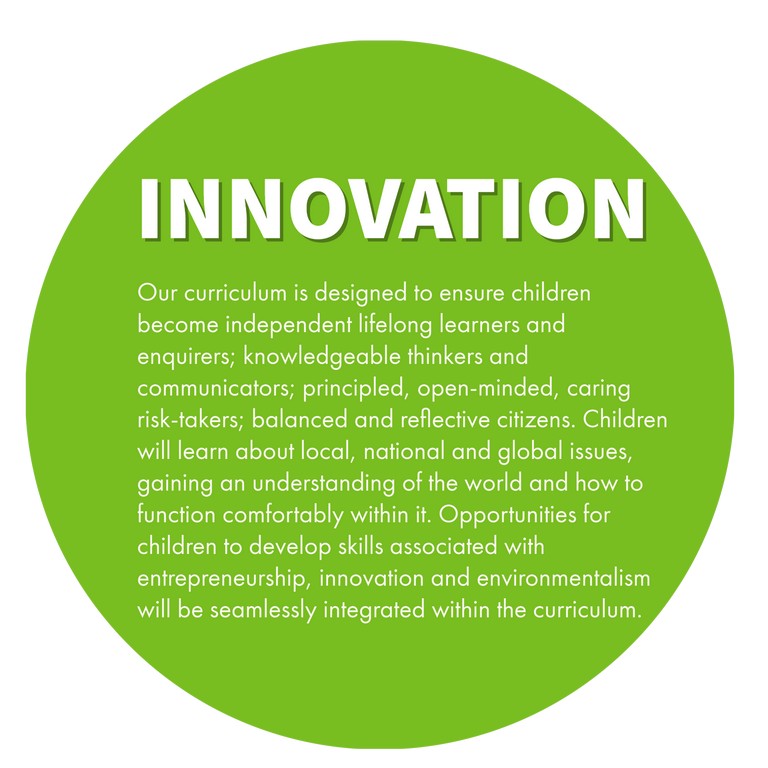
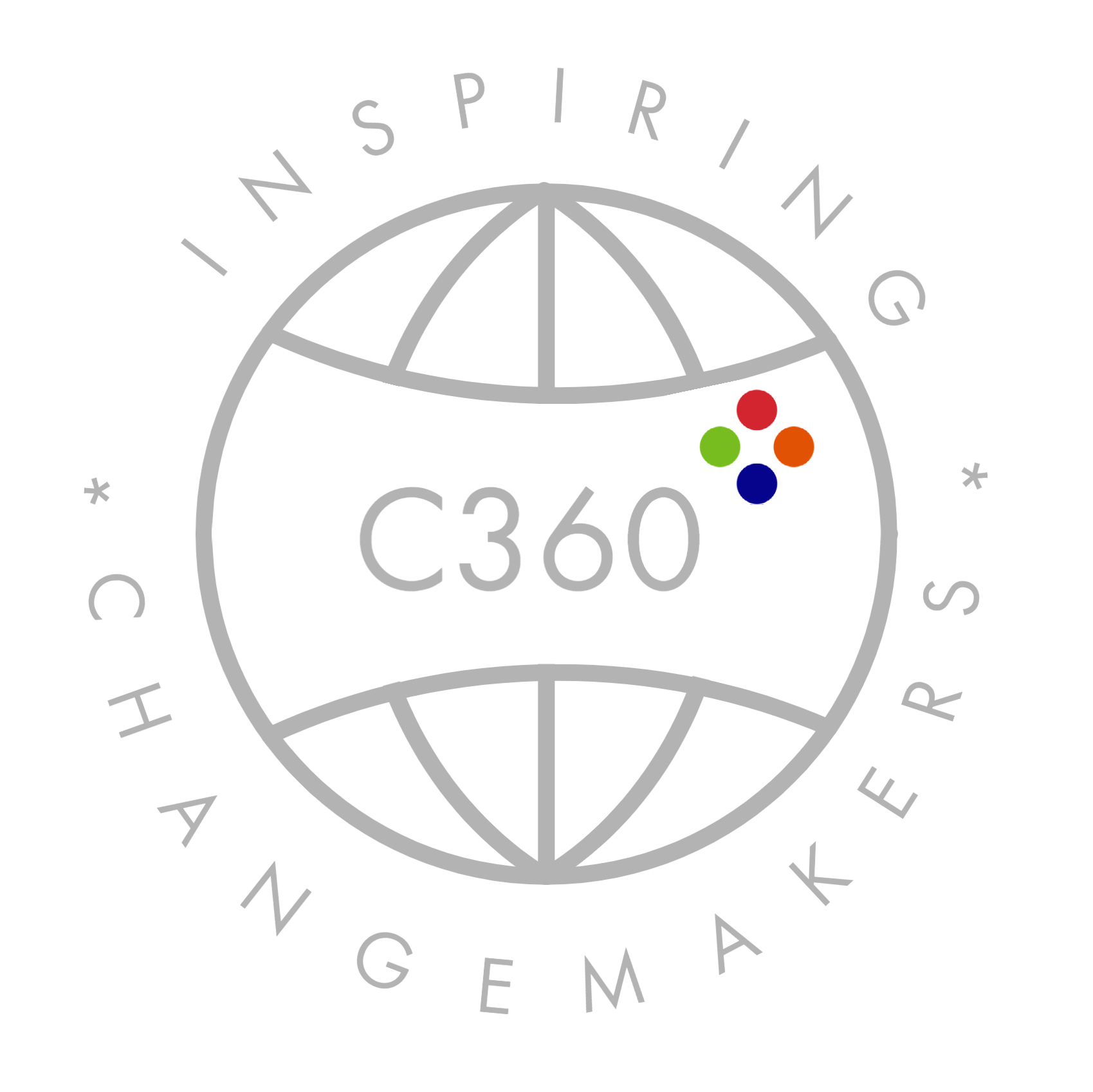
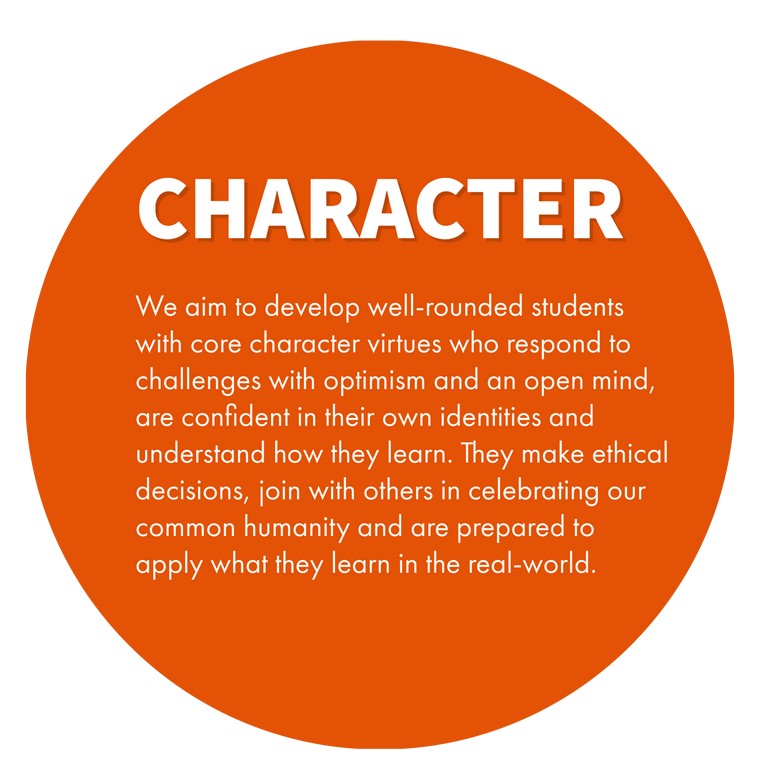
Implementation
These four cornerstones are implemented throughout our curriculum. The curriculum is everything that the children experience in and around the school, planned and incidental, caught, taught and sought.
The ‘caught’ refers to the culture of the school and the inspirational influence of a positive ethos.
The ‘taught’ refers to the educational experiences the school provides to equip children with the vocabulary, knowledge, understanding, skills and attributes they need to be successful and ready for the next stage in their learning.
The ‘sought’ refers to the opportunities that generate the formation of personal habits and character virtues.
Character Education
Character Education will be taught and children will have opportunities to practise their character virtues through all curriculum subjects, enrichment and wider experiences. Character education is woven throughout, enhancing the curriculum to ensure children have experiences beyond the classroom, and providing them with opportunities to apply their skills and knowledge in a wider context. Linking all the building blocks of character through four core character virtues:
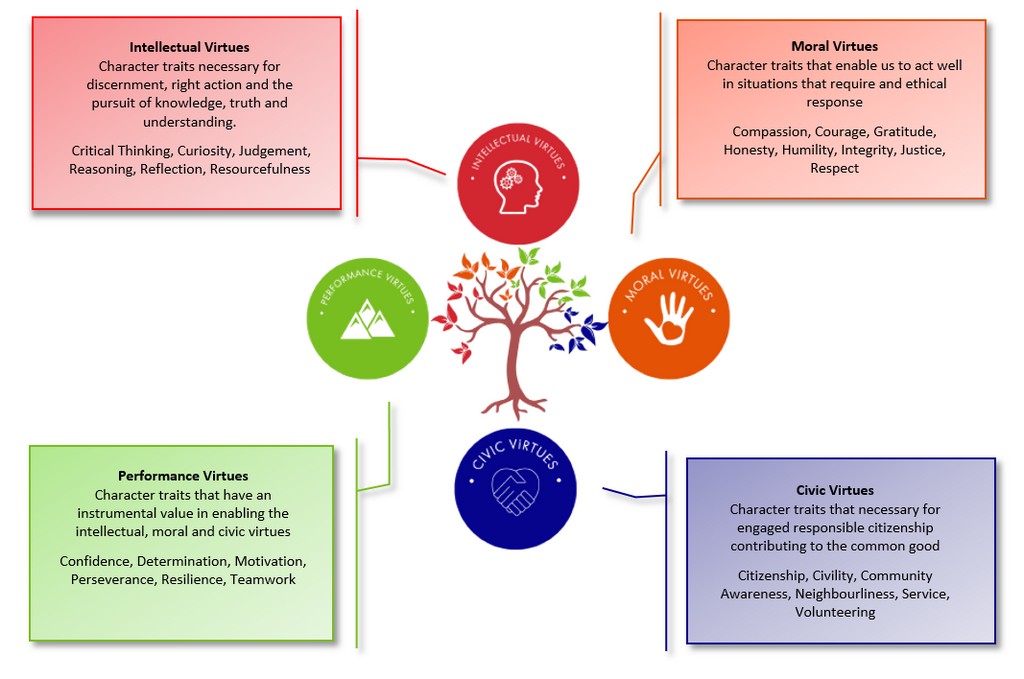
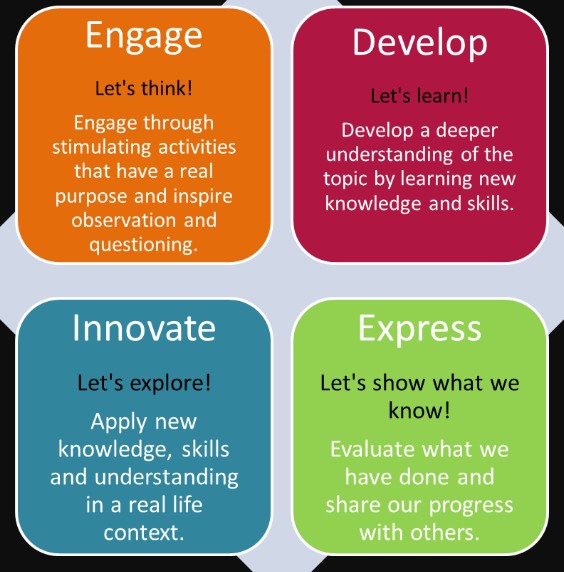
Curriculum
Our curriculum comprises a creative and thematic approach to learning that is mapped to the National Curriculum to ensure comprehensive coverage of national expectations. The learning journey is mapped out year by year and subject-specific content ensures there is clear progression, consolidation and extension of skills and knowledge. We build in opportunities for children to return to areas of learning, which allows them to gain a deeper understanding of the skills and processes within subjects. The planning process involves the children assessing their previous knowledge and encouraging them to pose their own questions throughout each project.
← The approach is based on the following four key components of learning shown here.
At the Engage stage, children:
- Gain memorable first-hand experiences, such as going on a visit or inviting a special visitor into school
- Get an exciting introduction to a new project
- Begin researching and setting enquiry questions
- Get lots of opportunities to make observations
- Develop spoken language skills
- Take part in sensory activities
- Have lots of fun to fully engage with their new project
At the Innovate stage, children:
- Apply skills, knowledge and understanding in real-life contexts
- Lead their own learning through individual and group projects
- Solve real or imagined problems using everything they’ve learned
- Be inspired by imaginative and creative opportunities
- Revisit anything not fully grasped at the ‘Develop’ stage
At the Develop stage, children:
- Improve their knowledge and understanding of the topic
- Develop and practise their new skills
- Compose, make, do, build, investigate, explore, write for different purposes and read across the curriculum
- Research their own questions and those set by others
- Follow new pathways of enquiry based on their interests
- Complete home learning activities that support their learning
At the Express stage, children:
- Become the performers, experts and informers through presenting their work in a variety of ways
- Share their achievements with parents, peers and the community
- Evaluate their own learning
- Link what they have learned to where they started
- Celebrate their achievements
Please also refer to our Teaching, Learning and Assessment policy for further information regarding implementation.
Impact
- Children will inspire change and be change makers.
- Children will develop practical wisdom; knowing the right action at the right time and to become flourishing individuals who contribute towards a flourishing society.
- Children will develop character virtues that have far-reaching effects beyond the school gates, ensuring children become global citizens of the future.
We monitor and track the impact of our curriculum through:
- The Cornerstones Maestro online tool.
- The knowledge and understanding the children retain over time leading to the standards that the children achieve by the end of each year.
- The quality of work, progression of skills, depth of knowledge and understanding presented in the children’s books, classroom displays, learning journeys, exhibitions and social media feeds.
- Attainment and progress including national tests and standardised assessments.
- The development of children’s oracy - their ability to articulate their learning.
